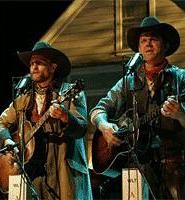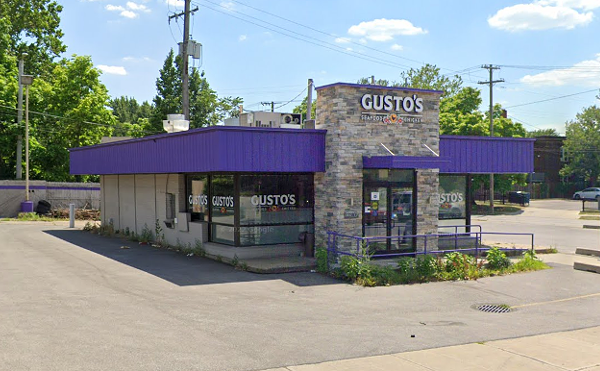Maybe Keillor was countering the counterculture by sending his first news from Lake Wobegon over the airwaves in the times-are-a-changin'-back year of 1974. Or maybe the emcee's playfully slippery tone -- alternately parodying and celebrating mid-American nostalgia for old-fashioned hard work, righteous self-pity, and what-the-hell-let's-strike-up-the-band -- allowed that only our close attention to a speaker's nuances would prevent another Tricky Dick. Whatever the case, the host's comically long-winded monologues on life in the invisibly small town have become damn near seditious in wartime. Here is the rare popular broadcaster who's dedicated to counting casualties -- not just poor Junior overseas, but Mom and Pop and their corner store too.
Robert Altman's A Prairie Home Companion is something of a different story, even though Keillor wrote it. What the maker of Nashville sees in the show, predictably, is another democratic ensemble of musicians and assorted stagehands, who come together in the service of maintaining their insular artists' colony in an inhospitable climate.
There are characters in the movie: the Johnson sisters from Oshkosh, Rhonda and Yolanda (Lily Tomlin, Meryl Streep), county-fair-circuit singers whose loopy chats before showtime wander from the dangers of glazed doughnuts to the pleasures of rubber bands; the Old Trailhands, Dusty and Lefty (Woody Harrelson, John C. Reilly), a pair of bad-joke-cracking cowboy crooners; and a hard-boiled but clumsy security guard called Guy Noir (Kevin Kline), a familiar figure from Keillor's actual show. The flimsiness of these characters ends up adding to the movie's charm: These aren't really Midwestern radio performers so much as movie stars who've signed up for one more improv party with Altman. The director is chiefly interested in capturing the musical performances, which carry a casually infectious, low-key energy, even (or especially) when the stars are off-key.
Keillor's modest subservience to Altman's group dynamic feels downright gallant; the director, in turn, amends his copyrighted style ever so slightly: The dialogue here doesn't overlap so much as cascade; the zooms don't suggest a biologist squinting through a microscope, but someone -- an old man, I might as well say it -- leaning in for a tiny kiss.










